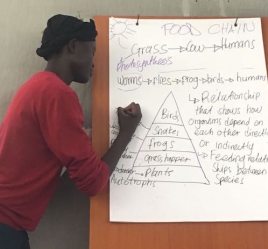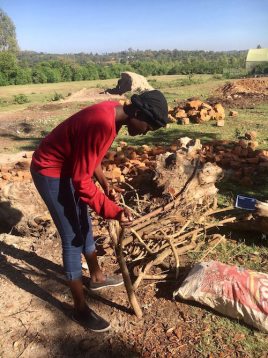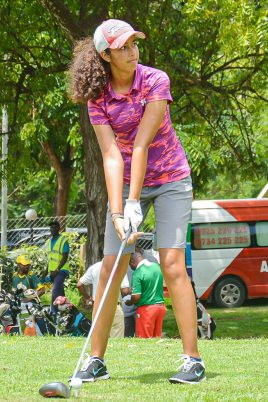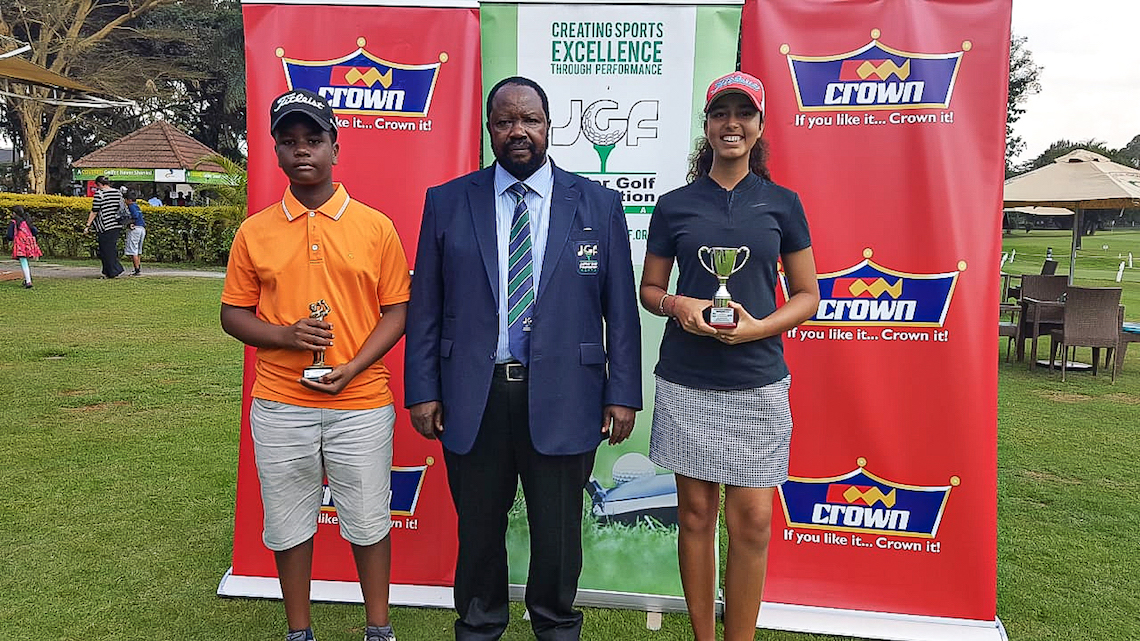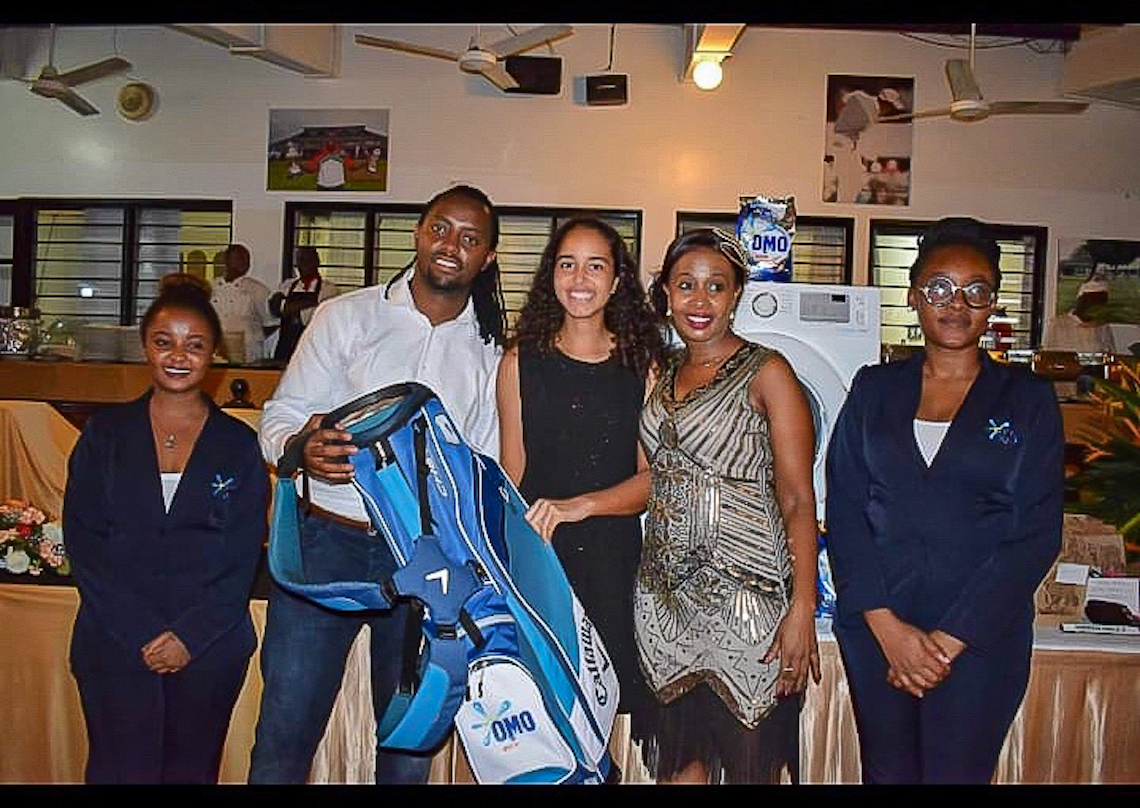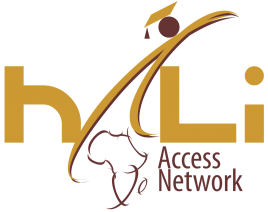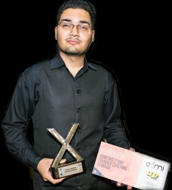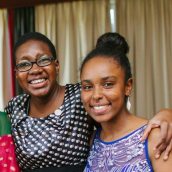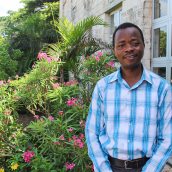Josephine Awino (Class of 2018): Cultivating a passion for sustainable agriculture
Josephine Awino, alumna of the Aga Khan Academy Mombasa, will be attending Wellesley College for her undergraduate studies in environmental science. She shares a reflection on her personal journey at the Academy in which she developed a sense of self and fostered her passions.
I was born in Mombasa, Kenya where my father worked as a photographer and my mother was a housewife. When I was three years old, however, my father died due to a tetanus infection. With no support from anyone in Mombasa, my mother was forced to move back home in Kisumu where the extended family was. Upon moving back, she had no job but still had to find a way to support my family as no one else would. She started farming vegetables at the family farm and sold her produce at the market and that’s how we survived for some time. At that time, farming wasn’t enough to support family needs and many times my family would go without a meal even for a whole day. Despite my mum farming food crops we still ended up having no food many times. I was enrolled at Tido Primary School where my siblings and I were fortunate to get sponsorship from an NGO who were willing to pay for our fees given our performance in class. My mother tried to carter for our uniform and food but she still wasn’t earning enough; when the NGO stopped supporting us educationally, I found myself home due to lack of fees. At that time, my mother wasn’t even able to pay for exam fees and went home without doing exams for the next grade. Coming from this background, where I hated my life and surroundings, I never stopped hoping for a better future for myself and my family. I just wanted to live like a normal child, doing normal things and not having to worry about whether I’ll have food for the next meal, or enough clothing, or if I’ll be allowed to attend class without the required fees.
Looking back at my mother who was raising five kids playing the role of both a mother and a father, I knew that she was doing the best that she could to raise and provide for us and I wanted to be able to help her in the future. I not only wanted to help her, but I didn’t want any family to end up like mine and kept on wondering what would happen if my mom went to school. She’d probably have a job and be able to support all of us comfortably. This is what motivated me all throughout my primary school, despite wanting to give up most of the time. I had managed to remain one of the top performing students in the class and my name never failed to be in the top 3. In grade 6, as one of the top 3 students, I was selected by the school for an interview for the Aga Khan Academy Mombasa where, if I was successful, I would get a full scholarship. I passed the interview and joined Aga Khan Academy Mombasa in January 2012 pursuing world class education in an environment that allowed me to focus on education while also taking part in extracurricular activities.
After high school, I will be joining Wellesley College in USA where I plan to venture into environmental science. Getting higher education abroad is particularly important for me. Since I am passionate about the environment and development, studying abroad will allow me to look at both issues from an international scale teaching to apply different solutions to local problems that Kenya currently faces. I will also be getting to know the bigger picture about environmental instability and development not only for Kenya but for the world at large; this is something that would be very hard to get at a local university. Getting to learn with people from all over the world is also another thing to add as I don’t only get to interact with them but I will get to know the kind of world they live in and what issues they face and how they approach them. This is beneficial for my growth and development in terms of applying different approaches to a problem, based on different perspectives from people all over the world.
After my studies I plan to come back to Kenya where I intend to apply all that I have learnt to solve local problems within my community and my country at large. One way I would like to do this is provide more educational opportunities for girls to attend school, making it a right rather than a choice so that less people end up like my mother did. I also want to venture into sustainable agriculture in a way that they would maximize their output while still not harming the environment. I want to make agriculture a reliable source of income for people in my community.
In my free time I like to read a lot. I read books and also read online. Reading helps me learn more about the world and also walk in other people’s paths of life. Through reading novels, I live another life. Through reading online, I tend to learn more about myself, exploring different things about myself while also learning about different issues affecting the world today. I research a lot about current issues mainly related to the environment and development just to keep myself up to date as well. As a person I would say that I’m an inquirer as I always want to know more and just look at another perspective on an issue. This helps me keep a balanced and understanding point of view especially when I interact with people.
I am also quite independent. Growing up and having no one to really rely on, I started sorting out my issues on my own without bothering my mum - this has really helped me grow to become my own person. My absolute passion lies with the environment and it’s beauty. This is something that I have been interested in from childhood because I’ve always felt a connection with nature and because of the different forms of environmental degradation I’ve seen which still haunt me up to date. When I see the environment degrading, even when I have no connection whatsoever with the issue, I usually feel responsible for the issue and grow this urge within me to stop the issues from carrying on. I have taught about the importance of the environment to various people in my community including students from my former school where I held my personal project - this has improved environmental conditions in my community.
By Josephine Awino
Alyssa Jamal: Swinging her way toward success
“I started playing golf because of my dad, Aly Jamal, who is also a golfer,” Alyssa said. “As a child I used to accompany my dad and hit balls on the practice range whenever he would go play. That's when he realised that I was good at golf and that’s when I started getting lessons to learn how to play golf from the pros at the Nyali Golf Club.”
Since Alyssa received her handicap in 2015, which is a numerical measure of a golfer’s potential with better players having lower handicaps, she has competed in numerous national and international competitions. Some noteworthy competitions include the U.S. Kids Golf International Competition, the 72 Holes Junior Stroke play Championship, Royal and many more.
“I love the game of golf,” Alyssa said. “It has taught me so many things, for example, etiquette, patience, focus and, most importantly, it has helped me in my social skills. I am passionate about the sport because it also helps me unwind from my busy school schedule.”
Alyssa said golf provides her with many opportunities to connect with different players, form closer bonds with her family and boosts her determination to always succeed.“I’ve met European Tour professionals when competing and when I go for international and national tournaments I meet new people, which has led me to make so many friends,” Alyssa said. “Also, my dad and brother are golfers as well so whenever we travel, we play golf as a family, which is so much fun and it’s a great way of bonding. I have also won so many tournaments and won so many amazing prizes, which is also a great source of motivation for me to prove myself over and over and try to win competitions.”
Although she has been playing for many years, Alyssa said she still finds herself as the only girl competing in golf for her age.“Unfortunately, I’m the only junior girl golfer in the coast,” Alyssa said. “Sometimes I feel bad that I don’t have any girl friends to compete with that are my age. However, there are boy juniors my age that I compete with and they are my good friends. I also know junior golfers from Nairobi, Arusha, Nakuru, South Africa, Scotland and Uganda whom I meet at least once a year when there are national or international competitions, and I keep in touch with them through social media. In Mombasa at the Nyali Golf Club, I play golf with both males and females who are sometimes twice or thrice my age, but they all love and take care of me and they are always happy to play with me. At Nyali Golf Club we are all like a big golfing family and I look forward to going there every single Saturday.”
No matter her age or her busy schedule, Alyssa said golf will always be a part of her life.
“Golf is a sport I will never give up on, even when I get old,” Alyssa said. “You will always find me on the golf course.”

Admission Requirements
The Academy uses a multifaceted assessment in identifying students. The assessments enable students to demonstrate their cognitive, literary, mathematical, creative and leadership abilities.
Admission is competitive and based on student merit, regardless of a family’s ability to pay. The Academy endeavours to meet the demonstrated financial need of each admitted student.
Please click here to access the application forms.
Junior School
Years 1–5: Primary Years Programme (PYP)
Students entering year 1 should have completed at least three years of nursery school and must be 6 years of age by 31 August of the year of entry.
All prospective students must demonstrate a potential for high academic achievement and demonstrate competency in literacy and numeracy. Each applicant from year 2-5 must sit a standard assessment in logic, English (reading and writing), mathematics and creativity. Applicants will also have personal interviews with key members of the Junior School staff as part of their application process.
Senior School
Years 6–10: Middle Years Programme (MYP)
All students applying for a place in the Senior School must have attained high scholastic achievement in their former educational institutions. They must also demonstrate a keen interest and participation in community service projects outside the classroom and/or extracurricular activities such as sporting activities, clubs, arts and music.
All applicants must schedule an appointment for a standard assessment test in logic, English, mathematics and problem-solving at the school, in addition to providing past student grade reports and certificates of achievement. Applicants will also have personal interviews with key members of the Senior School staff as part of their application process.
Diploma Programme
Years 11–12: Diploma Programme (DP)
Applicants for the International Baccalaureate (IB) Diploma Programme at the Aga Khan Academy Mombasa, must have demonstrated outstanding academic achievement as well as a proven record of civic mindedness and participation in community projects.
The application process requires prospective students to undergo a standardised assessment test in English, mathemathics and logic as well as an interview with IB Diploma Programme coordinators and key members of the Senior School staff.
New students will not be accepted in the year of the Diploma exam.
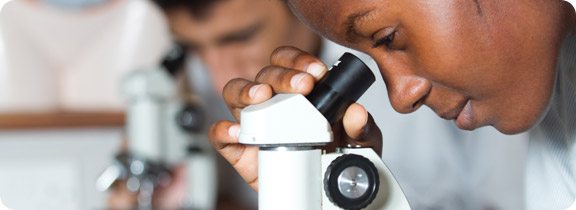
Admissions Forms to Download
If you are having difficulty accessing our online enquiry service, you can also download the package and forms here.
Age requirements
Please see the age requirements that will apply over the following years for entry to the Academy.
2012-13 2013-14 2014-15 2015-16 2016-17
Junior School
Years 1–6: Primary Years Programme
Students entering year 1 should have completed at least three years of Nursery School and must be 6 years of age by 31 December of the year of entry.
All prospective students must demonstrate a potential for high academic achievement and demonstrate competency in literacy and numeracy. Each applicant from year 2-5 must sit a standard assessment in logic, English (reading and writing), mathematics and creativity and supplemented by personal interviews with key members of the Junior School staff.
Senior School
Years 7–10: Middle Years Programme
All students applying for a place in the Senior School must have attained high scholastic achievement in their former educational institutions. They must also demonstrate a keen interest and participation in community service projects outside the classroom and/or extracurricular activities such as sporting activities, clubs, arts and music.
All applicants must schedule an appointment for a standard assessment test in logic, English, mathematics and problem-solving at the school in addition to providing past student grade reports and certificates of achievement. Applicants will also have personal interviews with key members of the Senior School staff as part of their application process.
Diploma Programme
Years 11–12: Diploma Programme
Applicants for the International Baccalaureate (IB) Diploma Programme at the Aga Khan Academy Mombasa must have demonstrated outstanding academic achievement (with a minimum of an average B grade from their current school) as well as a proven record of civic mindedness and participation in community projects.
The application process requires prospective students to undergo a standardised assessment test in English, mathemathics and logic as well as an interview with IB Diploma Programme coordinators and key members of Senior School staff.
New students will not be accepted in the second year of the diploma programme.
Academy tours are held regularly throughout the school year. For more information about applying to the Academy, please contact the admissions office. You can call the admissions team on their direct lines: +254 (0) 736 200 008 or +254 (0) 733 121 927.
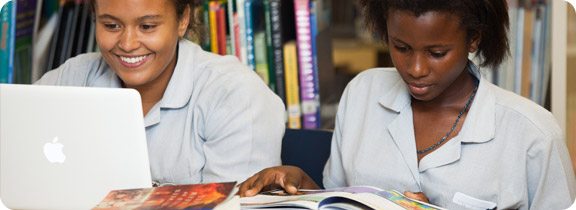
University Counselling
The Aga Khan Academy Mombasa’s University Counselling programme offers students a vast array of resources designed to help them find good matches between themselves and universities/colleges. These resources include a dynamic and well-resourced college counsellor, a wealth of printed, video and online tools and a series of informational workshops and seminars on topics central to the college discovery process.
Our counsellor engages students in individual conferences that are designed to help students reach a greater awareness of who they are. Armed with the well-articulated sense of self, students are prepared to find universities or colleges that are the best fit. Ours is a student-centred approach, and we believe that the likelihood of satisfaction with their choices is enhanced when students are empowered to 'own' the process. Also key to success is good communication among all parties: students, parents and college counsellors. While outcomes are important, it is the process of self-discovery and college-discovery on which our programme focuses.
The Aga Khan Academies University Counselling Handbook has been prepared in order to orient students to the complex and exciting process of university application and selection. The handbook provides definite guidelines and schedules that will help students comprehend the many issues and challenges they will face in their last years of secondary school. It is designed to provide the beginning steps and an outline of the application process and curriculum in various countries.
The handbook serves as a road map that will guide students as they embark on the transition from the Academy to university. It will be helpful only to the extent that students take advantage of the information it contains. The book does not replace the help of the University Counselling Office. However, it does provide answers to frequently-asked questions, it can help students organise their thoughts about university and, in general, it can eliminate much confusion if time is taken to read it and incorporate its recommendations into university planning.
For further details, please contact our University Counsellors via email:
Lucinda Ochieng – University Counsellor: lucinda.ochieng@agakhanacademies.org
Paula Russell – University Counsellor: paula.russell@agakhanacademies.org
University Counselling: university.counselling@agakhanacademies.org
The Aga Khan Academy Mombasa works with a number of High-Achieving Low-Income African students through our school's generous financial aid and Talent Identification Programme. As such, we are a member of the HALI Access Network.
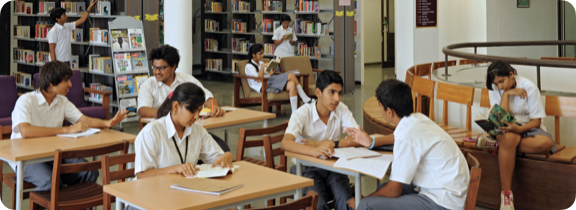
Admission Requirements
The Academy uses a multifaceted assessment in identifying students. The assessments enable students to demonstrate their cognitive, literary, mathematical, creative and leadership abilities.
Admission is competitive and based on student merit.
Please click here to get more information.
Nursery School
Kindergarten 1, 2 and 3: Early Years Programme
Students entering Kindergarten 1 must be 3 years of age by 31 July of the year of entry.
All prospective students must demonstrate the potential for high achievement. Each applicant will participate in a variety of assessment exercises. Assessment exercises include different sets of skill tests (communication skills, social skills and motor skills).
Junior School
Grades 1–5: Primary Years Programme
Students entering year 1 should have completed at least three years of nursery school and must be 6 years of age by 31 August of the year of entry.
All prospective students must demonstrate a potential for high academic achievement and demonstrate competency in literacy and numeracy. Each applicant from Grades 2-5 must sit a standard assessment in logic, English (reading and writing), mathematics and creativity. Applicants will also have personal interviews with key members of the Junior School staff as part of their application process.
Senior School
Grades 6–10: Middle Years Programme
All students applying for a place in the Senior School must have attained high scholastic achievement in their former educational institutions. They must also demonstrate a keen interest and participation in community service projects outside the classroom and/or extracurricular activities such as sporting activities, clubs, arts and music.
All applicants must schedule an appointment for a standard assessment test in logic, English, mathematics and problem-solving at the school, in addition to providing past student grade reports and certificates of achievement. Applicants will also have personal interviews with key members of the Senior School staff as part of their application process.
Diploma Programme
Grades 11–12: Diploma Programme (DP)
Applicants for the International Baccalaureate (IB) Diploma Programme at the Aga Khan Academy Dhaka, must have demonstrated outstanding academic achievement as well as a proven record of civic mindedness and participation in community projects.
The application process requires prospective students to undergo a standardised assessment test in English, mathemathics and logic as well as an interview with IB Diploma Programme coordinators and key members of the Senior School staff.
New students will not be accepted in the year of the Diploma exam.
Joseph Munyambanza: The story of a conqueror
As we sat for our lesson on a sweltering Tuesday afternoon, there was anticipation for the upcoming week-long break, obstructed only by the last lesson of the day. We sat for a while in a lazy stupor before our speaker arrived humbly apologising for his delay. Joseph Munyambaza was calm and composed as he began his initial talk on disparities of living. Despite appearing to be an average man who started by talking of ordinary sundries, he informed us that he was raised as a refugee and that it was education that propelled him to the position he is in today.
He began by narrating to us that life was free and full of enjoyment in the Congo. “There was plenty of food, I was always playing…” he recalls as he spoke of his six-year old self. Due to his age, he is now aware that he was shielded from most of the atrocities that must have taken place. His older siblings on the other hand, were not as fortunate. “My brother, who was a teenager at the time, was greatly disturbed by the events that took place…” Eventually, his older brother sought comfort in alcohol in an effort to forget what he had seen. Joseph’s family relocated to refugee camp in Western Uganda in a place called Hoima. Life was different and evidently, it was hard. The life of abundance and freedom was long gone and now the life of lack and want was all that there was. You can imagine the terrible living conditions in the refugee camp which was congested and dangerous. As he grew life seemed to eventually settle when tragedy struck. Joseph’s older sister passed away only a few days before exiting the refugee camp to attend university. What really moved me was the fact that she died under preventable circumstances. His sister died because his family did not have sufficient funds to pay for treatment.
This turning point propelled him to getting a placement in a high school outside the refugee camp where he was to begin to establish his academic prowess. He further explained that he knew how important his opportunity was so he would remain focused in his studies at all costs. Things were running smoothly throughout his years in high school with his school fees sorted out by the UNHCR. He was determined to also give opportunities to other refugee children who, just like him, were so full of potential. “When I was in my second year of secondary school, my friends and I wanted to enable other refugee children to access education. And so we started COBURWAS, a youth organization that represents Congo, Burundi, Uganda, Rwanda and Sudan. Refugees in the refugee camp we lived in came from these countries and we wanted to have a shared solution. All youth came together to think of solutions. Though we had many challenges we realised that lack of access to education was more dangerous. We started tutoring, which I did to enable children to get good grades and feel motivated to love school. We also worked for people to raise money to buy exercise books for the most vulnerable children in our midst. We were a club at first, but with time our programs expanded and we became a community-based organisation. The refugee community was of great help because they supported us with the little available and it meant so much in our small start.”
However, in his fourth and most senior year, his scholarship was withdrawn. “My education was initially supported by UNHCR in senior one but when I went to senior two they sent letters that UNHCR does not have more money to support education. Fortunately, a friend called Eric Glustrom who was starting an organisation helped me to complete senior four.” Even with a graduate certificate under his belt, he was unsure of what was to come next. Then, another whirlwind of events took place such that he was admitted to the ALA (African Leadership Academy) located in South Africa. This is an institution that is internationally recognised for producing innovators and entrepreneurs who are sure to make a positive impact within their home countries. Joseph says, “I had no dream of getting to a great school like ALA. I was already extremely grateful to be in my school that was the best in the district. And so even after being accepted to into ALA I still did not believe it until I landed in Johannesburg and was handed the key to my room. It was more than I could have ever dreamed of. And when I reached at ALA I wanted to be the best I could as a student, an ambassador to my fellow youth in the refugee camp and do well in class.”
All in all, his story was able to bring out the extent of the disparities of lives outside our own. The concept of war, forced migration and other forms of hardship is one that cannot be explained in a short period of time but were nevertheless highlighted in his talk. It is fascinating how a life can change simply as a result of joint efforts and self-motivation. By the end of his talk it was crystal clear that according to Joseph Munyambanza, education is a powerful tool.
By Bijou Mwaura, DP1
Kashyap Gohel (Class of 2011): Providing solutions to improve the world
Kashyap Gohel has been pursuing a Bachelor of Architecture programme at the Jomo Kenyatta University of Agriculture and Technology (JKUAT) in Nairobi, Kenya since graduating from the Aga Khan Academy Mombasa in 2011. "My top marks at the Aga Khan Academy earned me a government scholarship which is about 85% of the annual fees for my architecture course of six years," says Kashyap very proudly. He expects to graduate from JKUAT in June 2017.
"I think the main values the Academy instilled in me were positive attitude, time management, assertiveness, competitive spirit and self-confidence. These are values that I apply on a day-to-day basis to form the foundation of a successful career in art, product design and architecture," Kashyap says confidently. He also adds that the confidence that his skill set gives him takes him further than most in trying challenging and new projects in his field. With this experience in mind he says, "I am sure I shall be quite a pioneer in creating world-changing ideas."
Kashyap believes the coursework at his university and his time management are going smoothly due to the intense training at the Aga Khan Academy. "Coming from the Academy, I believe it set me a level ahead of others, enabling me to go further than my fellow students." He also values the International Baccalaureate curriculum. "It is the only system that I know of that makes it possible for one to develop holistically. One does not just learn academics, but also extracurricular activities, leadership skills, developing talents and solving community problems," he says emphatically.
Since graduating from the Aga Khan Academy, Kashyap has participated in many major events and activities that have brought him recognition and accolades. He was a winner of the Perstorp Open Innovation Challenge 2016 in Sweden which involved submitting ideas on making, repairing and remolding furniture into new shapes and designs rather than disposing of used or broken pieces in landfills. Kashyap has also won the Disruption by Design Award for architectural design in 2015. Other accomplishments include being awarded a tender to create a 14-foot-tall carving at Jomo Kenyatta International Airport in Nairobi, Kenya in 2014 and winning the first round of the Thought for Food Challenge 2013 – an annual competition that challenges university students to develop an innovative solution to improve food security. He also won an international graphic design contest for an Irish boat-making company and has displayed his artwork at Diani Beach Art gallery, Tazama Art Gallery and Kenya Art Fair.
Kashyap was also nominated and sponsored to attend the One Young World conferences in Pittsburgh, USA in 2012, and in Johannesburg, South Africa in 2013. These summits gather the brightest young leaders from around the world, empowering them to make lasting connections and develop solutions to some of the world's most pressing issues.
Kashyap is particularly proud of his first community service project, called Project Desert Farms. He designed this as an architectural solution to help communities on the coast to filter ocean water, obtain housing and food, and reduce deforestation. This project was selected as a finalist project from a worldwide participation of 140 teams, and the only one in Africa that made it to the Thought for Food Global Summit in Berlin, Germany.
While at the Aga Khan Academy Mombasa and after graduating in 2011, Kashyap has been actively involved in many projects and volunteer activities and has also worked for the Academy and other companies in his field. In 2011 he worked with planning and construction management at the Aga Khan Academy. He also volunteered there as a theatre teacher for years 7–10 in 2012 and was involved in the design of two of the Academy’s residential blocks.
Kashyap's most unforgettable experience at the Academy was being a dorm captain in the residential programme. "One of the things I miss about the Academy is the organisation…[and the] efficient order in the way it operates," he comments. Another thing he misses about the Academy is the facilities. "It’s only after leaving the Academy that you appreciate the constant high speed Wi-Fi, adequate number of desks and chairs for students, high-class sports facilities and equipment, and most of all the great ocean climate and friendly people. As they say, nothing beats home," Kashyap reminisces nostalgically.
Erica Byenkya (Class of 2014): Contributing to society with love and generosity
Erica Byenkya, who is a fourth-year student at Saint Mary’s University in Halifax, Canada, is a graduate of the Aga Khan Academy Mombasa. Since leaving the Academy in 2014, Erica has been pursuing a Bachelor of Commerce degree at the university with a double major in marketing, and computer and information systems. She is expecting to graduate from the university in May 2019.
“I think that my Academy experience was vital in my success in university so far,” Erica says confidently. The Academy, she says, nurtured within her a love of volunteering that helped her make connections and friends, and also ensured that she remained connected to her local community. “I think that we were definitely more focused on encouraging independence and community service than the schools attended by other students,” Erica comments. The experience of living in residence at the Academy, she says, also helped her become more self-sufficient and taught her how to take care of herself – this was useful when she moved to Canada for higher education.
At the university, Erica has worked through three work terms as part of the cooperative education programme. In these three terms, she has worked as a marketing coordinator for a software development company and at a non-profit organization focused on encouraging students and faculty in the sciences. She has also taken up volunteer work, including with a local after-school youth programme and as the public relations representative of the Saint Mary’s African Student Society (SMASS). She is currently preparing for her second year with SMASS.
Erica is also doing well in her academic work. She received an entrance scholarship from Saint Mary’s University, which was increased last year due to academic achievement. Erica commends her counselors at the Academy: “I had a very hard time writing my personal statements for my university applications and I know that without the help of my counselors I wouldn’t have been accepted into all the universities I applied to.”
At the Academy in Mombasa, Erica was one of the founders of a service group that aimed to support local farmers in the area by consulting with them about their families’ needs and fundraising to help meet those needs. Through their efforts in the first year they helped one family send their youngest children to school, build a small shop to sell their wares and buy new seeds. The service group also helped pay the exam fees of the entire graduating class of a local school so that they could all sit their final exams.One of the many things Erica misses at the Aga Khan Academy Mombasa is her wonderful friends. “I’m still in contact with some of them online but being able to spend so much time with them was a gift I’m very thankful for,” she says. Her most unforgettable experience at the Academy which she is very proud of was learning to play the violin, which according to her was the most difficult to learn among other musical instruments. She fondly remembers her teachers: Mrs. Mwandawiro, her dorm mother and chemistry teacher, and Mr. Dudi, whom she calls “my wonderfully dramatic English teacher.” “They both pushed me very hard because they had high expectations for me, and while I did not perform as well as I’d hoped in chemistry, their expectations always encouraged me,” she says.
Erica chose to participate in the International Baccalaureate (IB) program because she felt, and still feels, that it offered her greater flexibility in her choices for the future. “With the national curriculum you are restricted to three subjects in your final two years but I was unsure about the career path I wanted to take and so I really appreciated being able to further study interesting subjects in the IB program while deciding what I wanted to do with my future," she remarks.
Erica says her future plans after graduating from the university is to stay and work in Canada for a while and then eventually make the decision about whether to pursue a post graduate degree. “I do see myself coming back to Uganda but before that happens I would like to travel more.” When asked what would she focus on to improve the lives of people in her country if she had all the resources at her disposal, Erica hoped that one day she could contribute to the renovation of the Ugandan library system so that it could benefit all the citizens of Uganda, especially the young students whose schools may not have large libraries or who seek safe and productive spaces to spend their free time.
Stephen Nyundo: Fostering students’ growth through Mathematics
Before we enter the 2019 – 2020 academic term, we would like to spotlight a few staff from AKA Mombasa who are going on to pursue new adventures in the upcoming academic year. Here, we take a look at Stephen Nyundo, a Mathematics teacher and head of the department, and his five years at the Academy.
Stephen Nyundo is from the Kenyan coast, specifically from a place called Kaloleni and was the head of department for the Mathematics department at the Aga Khan Academy Mombasa. Apart from the Mathematics department, Stephen was also the year level leader for year 9.
During his five years at the Academy, Stephen said he has admired the supportive relationships he’s made, which have helped him become a better teacher.
“My experience has been enriching and very rewarding at the Academy,” Stephen said. “I have interacted with friendly and accomodating people who did not look at my weaker side. People would tell me things would be fine, even when they actually appeared otherwise. I was supported in my early years in my professional growth and got an opportunity to learn all that I needed to learn. I will miss the family, friendship, strong ties and network I’ve built here. I will definitely miss the Friday treats.”
Stephen said the ethics and values instilled at the Academy not only influenced the students, but himself as well.
“The Academy has molded me to what I now am,” Stephen said. “I will carry with me the Academy values that I am sure will propel me to greatness.”
For the Mathematics department, Stephen said he has worked with students to develop methods on helping other students who might struggle with the subject.
“A good example is 'Euler Fulfillers', a YouTube initiative by two of my Mathematics HL students who came to me with the idea,” Stephen said. “After brainstorming, we thought this was the best move where Academy students can share with their fellow students in the Academy what they know best and also help others out with challenges in Mathematics. The other platform is the ‘MathMagic’, which brought together students from all of the classes to showcase how Mathematics is applied in real-life in the various units covered. The next platform we had planned to start working on was the 'Mathletics', which is a modified form of a treasure hunt. This is where talent is found; students make use of what they have learnt in the classroom to various situations in real-life.”
After his time at the Academy, Stephen said he is ready to pursue other teaching opportunities. However, Catherine Orwe, a Mathematics teacher who works with Stephen, said he will be dearly missed at the Academy by both students and his colleagues.
“Stephen has not been just a colleague for us, but a true friend and a person with a big heart,” Catherine said. “He always made time for all even when he had tight schedules to meet. He is always very positive even when the rest of the crowd was struggling with issues. He always worked very collaboratively with colleagues to achieve our departmental goals. He pleaded with members’ input by genuinely valuing others’ ideas and expertise, and he was always willing to learn from all of us. Yes, we have learnt so much from him. He is an amazing Mathematics teacher, and I know his students here will miss him. Stephen is a person that pays attention to details in everything that you do and he is the one who would point out the changes that we needed to make in our presentations both at table and the curriculum implementation. We will definitely miss having a wonderful friend like Stephen. Good luck to him in his future endeavors! We hope the new place he goes to is full of fun and happiness.”
